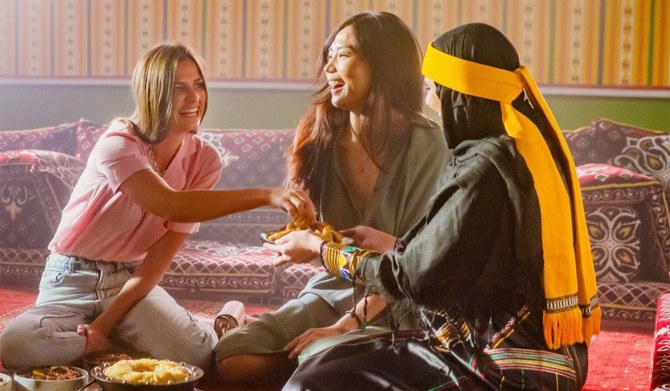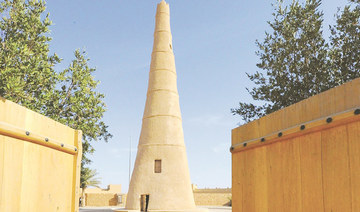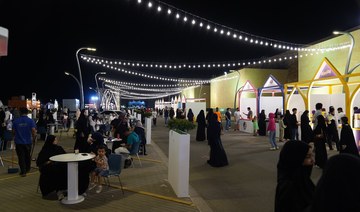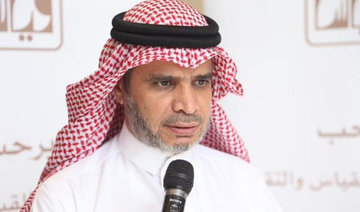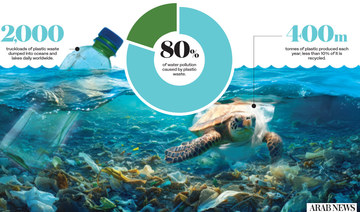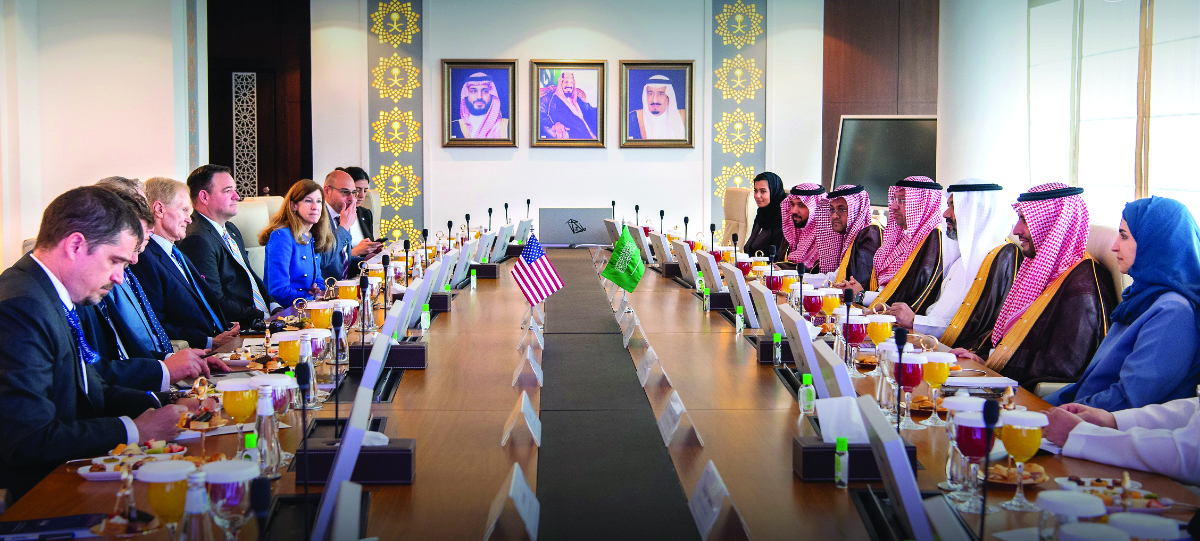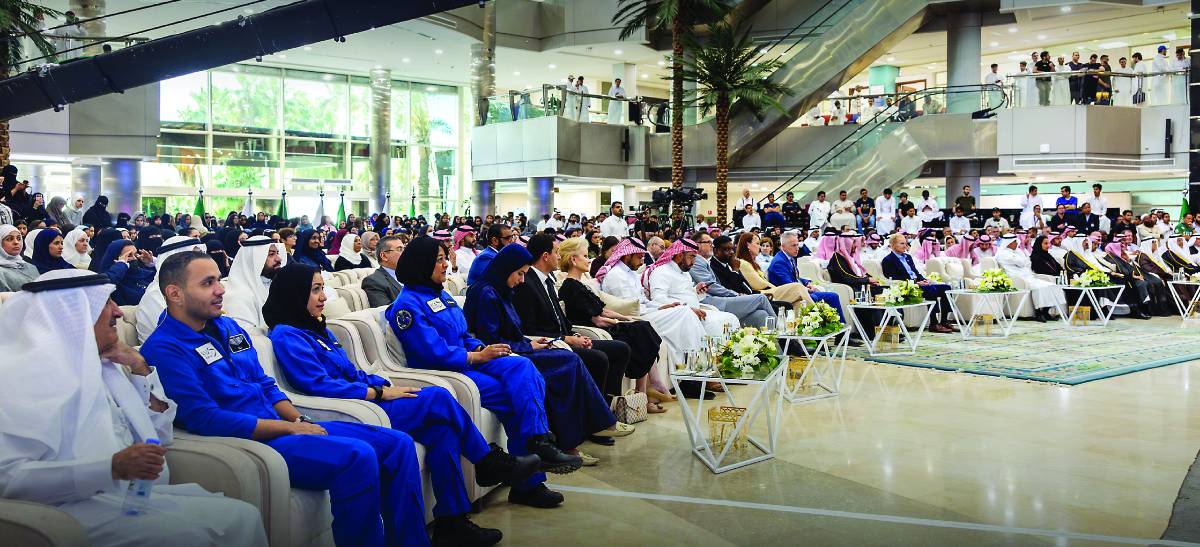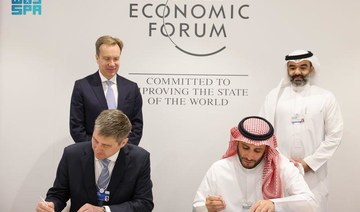RIYADH: With twinkling lights turned on and the smell of freshly fried samosas in the air, Muslim and non-Muslim expat households across the Kingdom join in observing the holy month of Ramadan, marked by its spiritual nature and family-centric values
Expats share both their excitement and expected challenges as they observe Ramadan away from home.
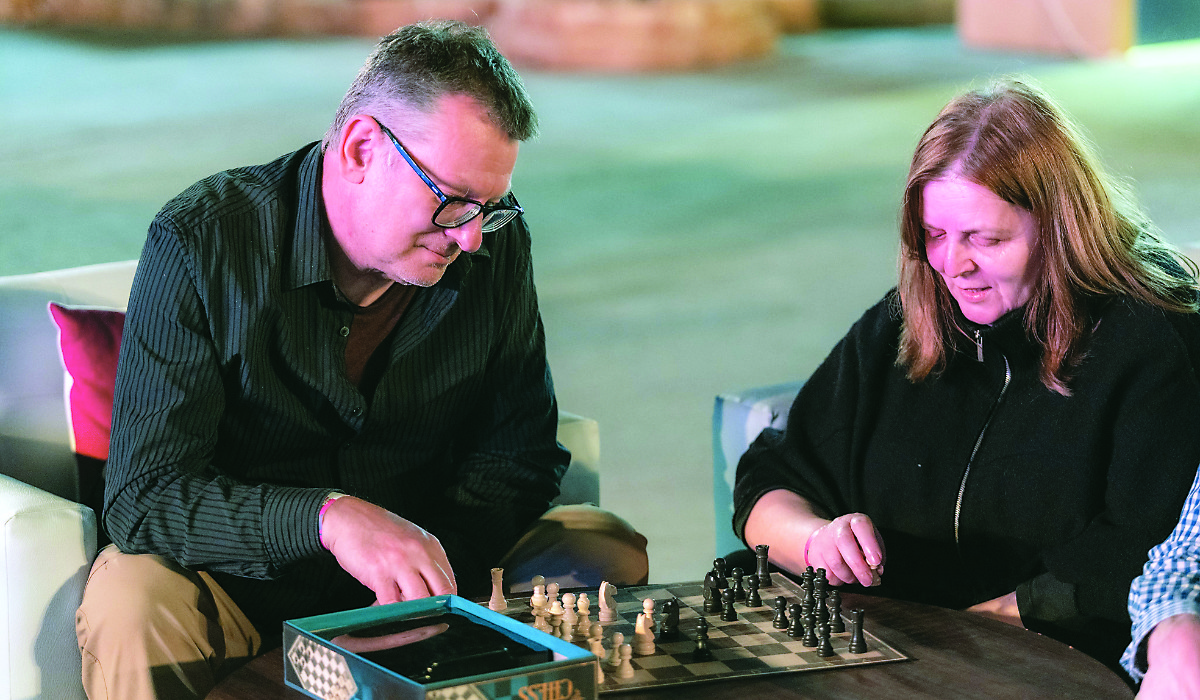
For residents of the Kingdom, Ramadan represents a period of calm as the rhythm of life slows down, providing opportunities to form new traditions and experience the spiritual month. (Supplied/Ramadan Season/Visit Saudi)
Croatian designer Tina Sablic has made a gradual move to Riyadh over the past few years, which she described as an enriching experience. Now, as a Riyadh resident, she is finally experiencing her first Ramadan.
“While I don’t celebrate Ramadan through fasting, I deeply respect its significance and the cultural practices associated with it. However, I do plan to make adjustments to my own fasting plan during this time as a sign of solidarity and respect for the observance,” she told Arab News.
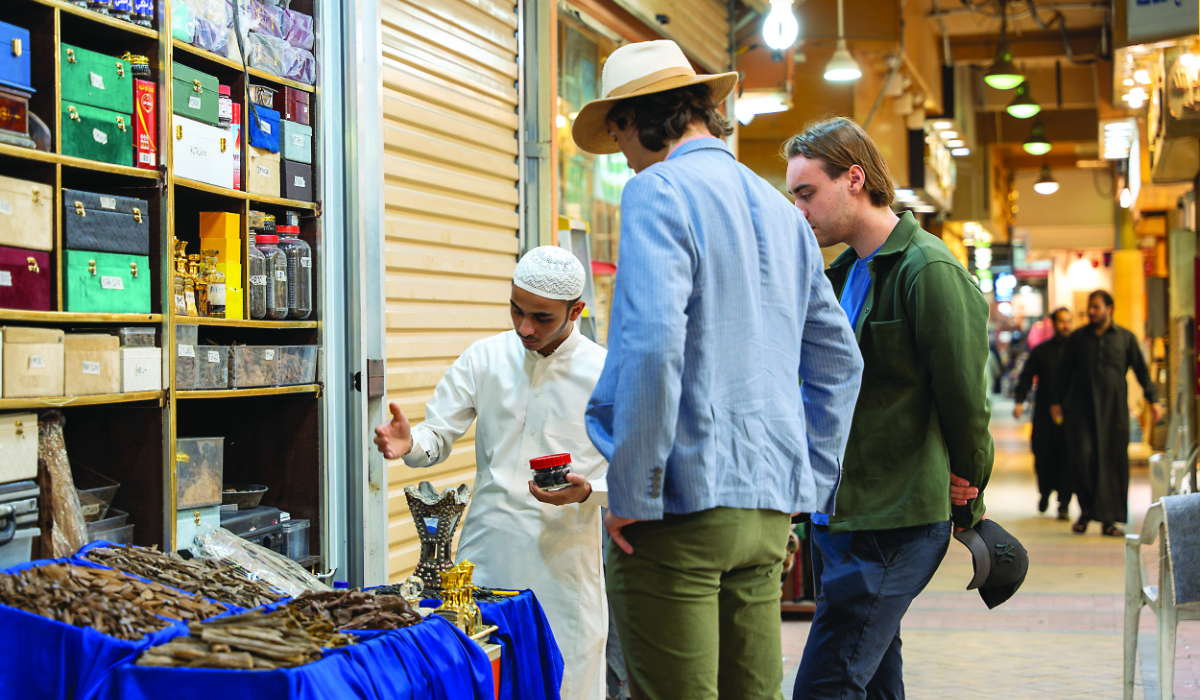
For residents of the Kingdom, Ramadan represents a period of calm as the rhythm of life slows down, providing opportunities to form new traditions and experience the spiritual month. (Supplied/Ramadan Season/Visit Saudi)
She acknowledged that the holy month is a time of self-reflection, self-awareness and self-discipline. In hectic, fast-paced daily schedules and lifestyle, it becomes a period of calm as the rhythm of life slows down.
“Since it is my first time experiencing Ramadan in Riyadh, I’m expecting to see vibrant night atmospheres with all of the festive lights, beautifully decorated streets and mosques and sounds of evening prayers. Sharing iftar meals with friends, colleagues and other expats will hopefully become a cherished tradition,” she said.

Tina Sablic, Croatian designer
As a non-Muslim celebrating Ramadan away from home, one of her primary challenges is adjusting to the changes in the local environment and daily routines. This may include adapting to altered business hours, meal schedules, and social activities during the fasting period.
“Social interactions and understanding the etiquette surrounding Ramadan customs and practices can also be a bit challenging. However, my amazing Saudi friends have guided me properly and their mentorship was so helpful in overcoming any cultural gaps,” she added.
Sharing iftar meals with friends, colleagues and other expats will hopefully become a cherished tradition.
Tina Sablic, Croatian designer
Pakistani resident Ifrah Mahmood has lived in Saudi Arabia since the ripe age of 9. After a difficult time adjusting, she is proud to now call it home. For her, the Ramadan period is a symbol of peace, tranquility, and a way to grow closer to Allah.
While she misses having iftar, sahoor, and indulging in the spirit with her family, she said that celebrating Ramadan in Saudi Arabia is unlike any other, and she cannot wait for the last 10 days in particular when Muslims immerse in deeper worship.
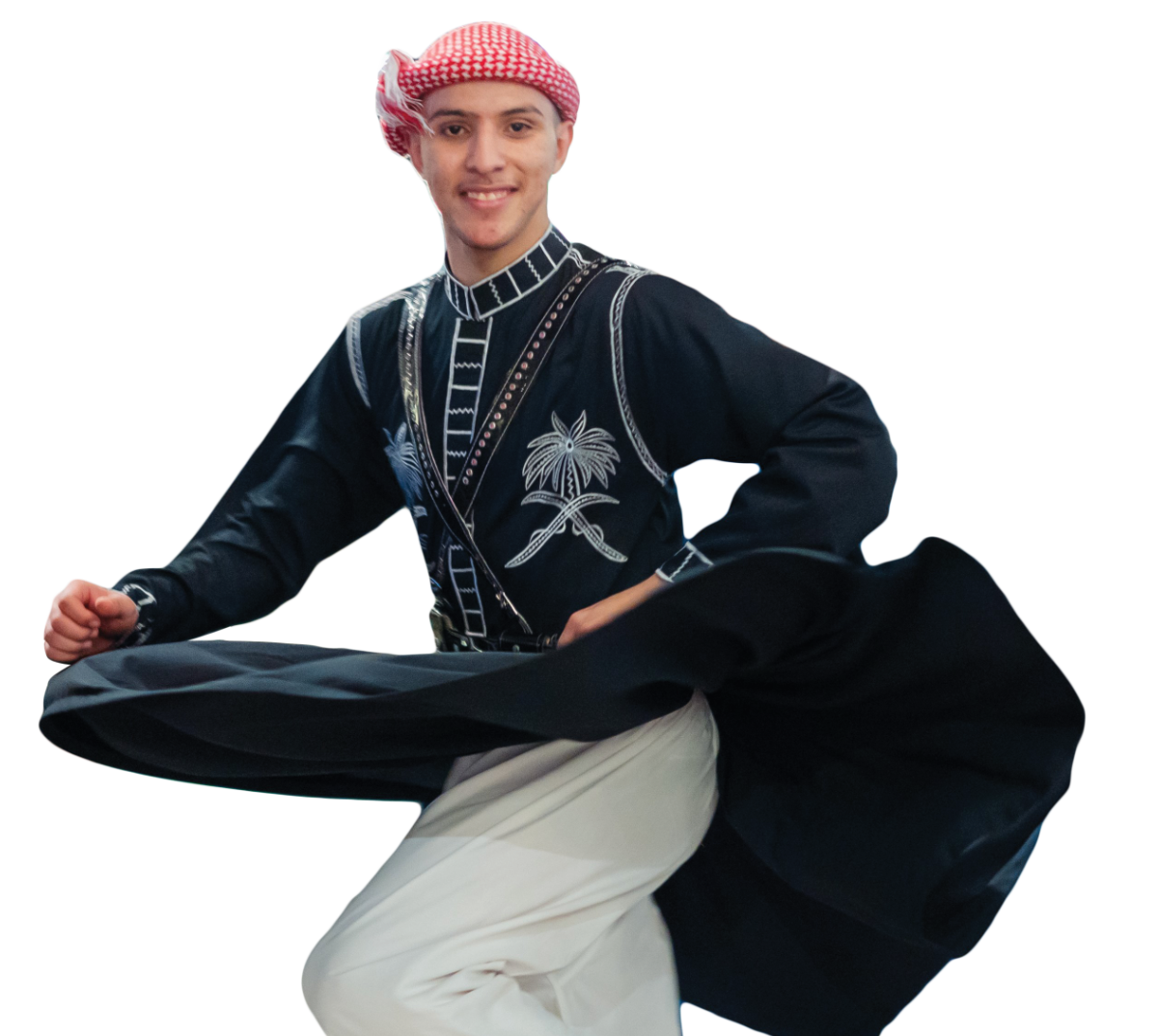
For residents of the Kingdom, Ramadan represents a period of calm as the rhythm of life slows down, providing opportunities to form new traditions and experience the spiritual month. (Supplied/Ramadan Season/Visit Saudi)
She said: “I have been celebrating Ramadan in Saudi Arabia for many years now. Ramadan here is like nowhere else. Everyone is kinder, the mosques are always open … night prayers and festivities make it so special.
“The change of routine is what I enjoy the most. The office timings are shortened which is a perk you can’t get in most of the non-Muslim countries. The markets are open all night long. It gives Eid vibes even before Eid.”
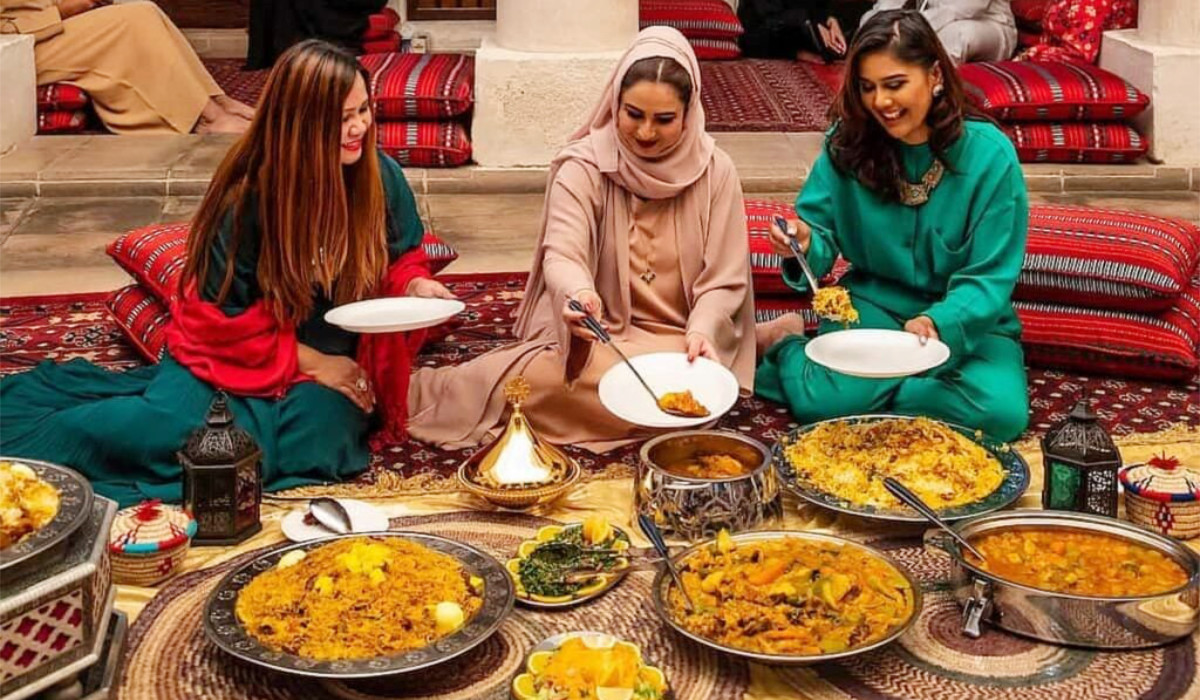
For residents of the Kingdom, Ramadan represents a period of calm as the rhythm of life slows down, providing opportunities to form new traditions and experience the spiritual month. (Supplied/Ramadan Season/Visit Saudi)
French creative Cecilia Pitre came to work in the Kingdom after the COVID-19 pandemic and was drawn to stay in the country mainly due to the hospitality of its people. “They’re very welcoming,” she said.
“What made me stay as well is the culture — it’s full of colors. There’s a lot of things to learn because this country was, at least for Europe, a little bit veiled and undiscovered. Not many people in Europe know about Saudi Arabia, but when we’re here we discover a country full of history, culture, art, fashion. There are so many things to do and to see!”
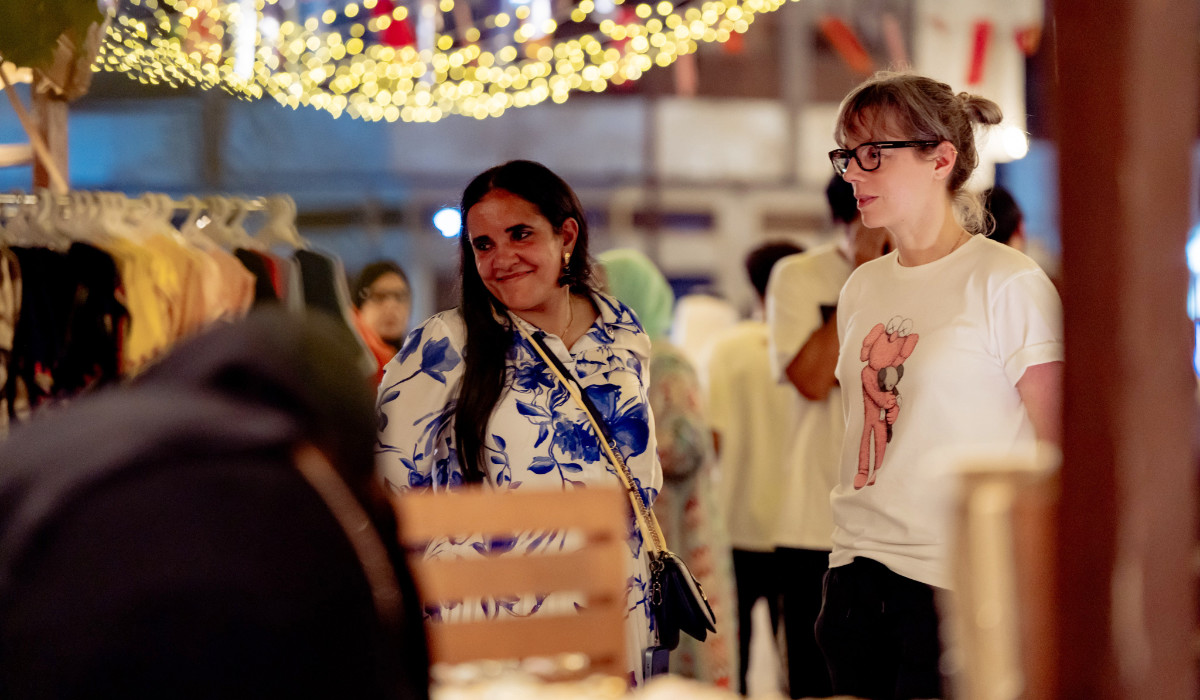
For residents of the Kingdom, Ramadan represents a period of calm as the rhythm of life slows down, providing opportunities to form new traditions and experience the spiritual month. (Supplied/Ramadan Season/Visit Saudi)
Pitre has celebrated a few Ramadan seasons before, but the creative plans to try a full fast this year. While she has been able to restrain from food, she has found it difficult to cut out water as well. She also plans to reduce other forbidden elements during Ramadan such as smoking, gossiping, and excessive screen time.
“As a foreigner and a non-Muslim, I’m taking the Ramadan period to actually learn more about the religion, read more about Islam, and understand what the fasting process is and what it brings to the people, whether Muslim or non-muslim … I’m trying to follow Ramadan at my speed, which is also something I think we should do more often.”
With abundant invitations from locals to share iftar and sahoor, Pitre plans to take this opportunity to indulge further into the culture and understand the significance of the dining practices.
Living on Tahlia Road, one of Riyadh’s most prominent dining streets, she witnesses the bustling crowd of families and friends making Ramadan memories as the night ascends.
“What I love about Ramadan is the decorations everywhere, the lights, the joy. Everybody’s happy and going out at night,” she said. “The vibe is unbelievable.”
Pitre says she does not face any challenges spending Ramadan away from France as Saudi Arabia has embraced the creative with open arms.
“If there’s any place to spend Ramadan in, it’s definitely Saudi Arabia, which I consider my second home,” she said.



